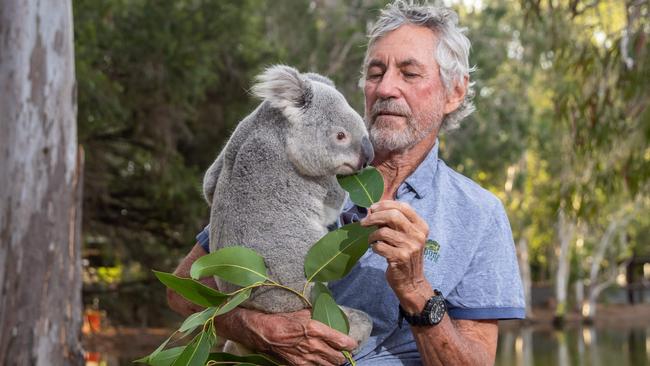Coronavirus: Border closures costing 5000 jobs a week
Border closures and the clamp down on interstate travel are costing nearly 5000 jobs a week, according to new modelling.

Border closures and the clamp down on interstate travel are costing nearly 5000 jobs a week and shrinking Australia’s economic output by $84m a day, according to new modelling, as Tourism Minister Simon Birmingham flags overseas holidays will be delayed until next year.
Queensland is the worst affected state, shredding an estimated 173 direct and indirect jobs each day since late March — more than 1000 a week — and losing about $147m in economic activity on a weekly basis.
The modelling, by Lucid Economics for the Australian Tourism Industry Council, also shows 168 jobs were being lost in Victoria daily while the Queensland, South Australian, Western Australian, Tasmania and Northern Territory borders remained closed and 165 jobs disappeared each day in NSW. The daily cost to the NSW and Victorian economies were $21m and $19m respectively.
ATIC executive director Simon Westaway, who says two-thirds of the 10,000 businesses his organisation represents have either closed or been in hibernation since the height of the coronavirus pandemic, said the staggered reopening of borders was confusing for would-be travellers.
He called for all Australian borders to reopen in July.
NSW, Victoria and the ACT never closed their borders. South Australia is set to be fully reopened by July 20 and has begun allowing residents from some states in.
Queensland is due to reopen its border on July 10 while WA, Tasmania and the Northern Territory have not announced when their restrictions will be lifted.
“We now face the prospect of at least four different points in time for partial lifting of our closed borders, but with no guaranteed timetable for a full national reopening of state and territory borders. We are living in a state of confusion,” Mr Westaway said.
“The lower job and reduced state economic outputs have serious implications for our national tourism economy because interstate visitors are more financially valuable than intrastate ones.”
The tourism data, obtained by The Australian, can be revealed after Senator Birmingham confirmed it was “more likely” Australians won’t travel overseas until next year and international passengers from countries other than New Zealand will also not be allowed in. “I do, sadly, think that in terms of open tourist-related travel in or out of Australia, that remains quite some distance off, just because of the practicalities of the volumes that are involved and the need for us to first and foremost keep putting health first,” he told the National Press Club.
Bob Flemming was forced to close Townsville’s Billabong Sanctuary on March 25 and after three months of earning no income will reopen on the 27th, in time for the Queensland school holidays. The business owner said he was reliant on “southerners” from Sydney, Melbourne and regional NSW and Victoria to replace international tourists. Overseas visitors make up 42 per cent of the sanctuary’s market compared with 25 per cent of interstate travellers, 25 per cent of locals and 8 per cent of regional Queenslanders.
“We make all of our money between the June-July school holidays and the August school holidays. Unless the Aussies have had time to plan their holidays — nobody just jumps in a car overnight — we’re going to miss that window,” Mr Flemming said.
“That will put us behind until the next June. My wife and I have been putting our personal savings into keeping the business afloat. That can’t go on forever.”




To join the conversation, please log in. Don't have an account? Register
Join the conversation, you are commenting as Logout